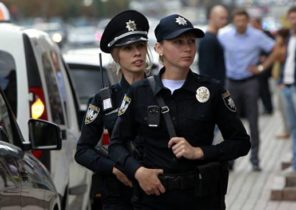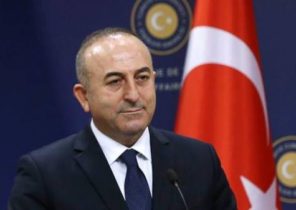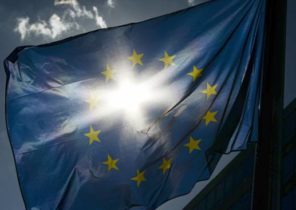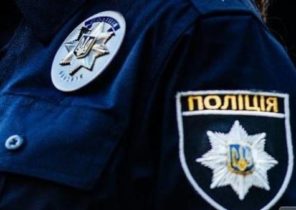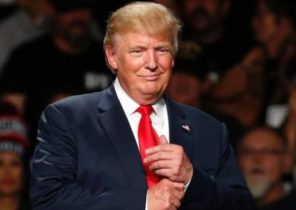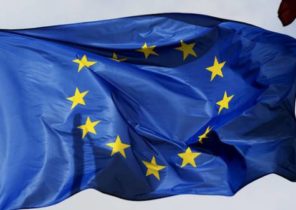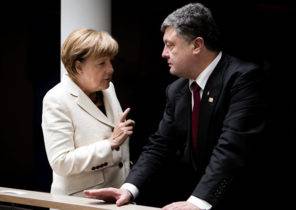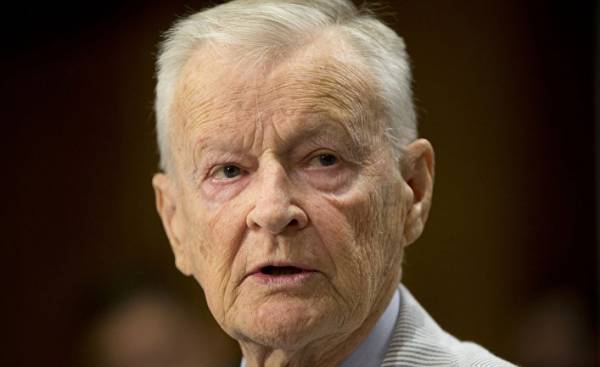
90-m to year of life in Virginia died Zbigniew Brzezinski, one of the most influential and respected veterans of American foreign policy.
Zbigniew Brzezinski was born in 1928 in Warsaw to family of Polish diplomats, in the 1950s, became a citizen of the United States, where he graduated from Harvard University and made a bright political career. Was one of the founders of the Trilateral Commission, its Director in 1973-1976.
In Russia, Zbigniew Brzezinski labeled the “hawk” and “Russophobe”, but in the US it has a reputation as one of the most astute analysts. In the Carter administration, from 1977 to 1981, Brzezinski served as Advisor to the President on national security. He was one of the ideologists of struggle against the Soviet expansion in Europe, in Afghanistan and other countries active supporter of the Atlantic solidarity. That he belongs to merit inclusion in the Helsinki final Act on security and cooperation in Europe “third basket” — the obligations of countries of the socialist bloc to respect human rights. According to this document, grew and strengthened the human rights movement in the USSR and Eastern Europe. Brzezinski anticipated the Soviet invasion of Afghanistan. As EA has already lost the presidential elections, he took vigorous steps to support the Polish opposition and to prevent the Soviet invasion of Poland.
In 1981, Zbigniew Brzezinski received the Presidential medal of Freedom — one of the highest awards the US to civilians.
Zbigniew Brzezinski has repeatedly advocated on air Radio Freedom. In an interview, he said these prophetic words about the war in Chechnya: “the War in Chechnya develops the negative trends in Russian politics, as it strengthens the position of the neo-imperialist politicians and Union, the KGB, the military and anti-democratic forces. War harms the long-term interests of Russia, because it slows down the process of democratization in the country and the process of establishing closer relations between Russia and the West. It has a negative affect, even adversely affect the Russian interests, because it develops a hostile attitude toward Russia in the Muslim world. So it’s defeatist policy of self-isolation and the formation of a hostile attitude from the outside world.”
About Putin and Putinism, he said:
“Putin is a man of strong emotions and extreme beliefs. For Putin, the United States, on a subjective level — in the center of its historical and international ambitions and disgust. It defines your goals, depending on the balance of forces and future of the United States and Russia. He believes that the United States benefit from the tragic historical development that led to the collapse of the Soviet Union. Many remember his statement that the collapse of the Soviet Union was the greatest tragedy of the twentieth century. The value of this statement is necessary to fully assess and weigh. The greatest tragedy of the twentieth century, in which occurred the first world war with millions dead, which redrew the map of Europe, world war II, have become most destructive to mankind for all history of existence of this humanity which led to two catastrophes — namely, the use of nuclear weapons against two cities, in which there were civilians, and to the Holocaust. This was followed by 40 years unsustainable, and potentially extremely dangerous cold war in which we all faced the threat of nuclear war. And start it for the first 8 minutes would have been destroyed 85 million people. Still, the disintegration of the Soviet Union, from the point of view of Vladimir Putin, puts it all out”.
Nostalgia for the old influence, according to Brzezinski, on the assessment of Putin this:
“Putin understands that Russia today is not Soviet Union or Russian Empire. And he admits that the deeply regrets this, and quite strongly indicates that he would like to change this situation. Of course, Putin knows, and if not him, then his advisers know for sure that the Russian economy is distorted. And deformed so that it becomes a Nigerian. It is also an economy producing enormous inequality in the distribution of wealth. And the situation is only getting worse because many of those who can get this wealth, take the opportunity to carry this wealth to the West, so it is not invested in the development of Russia”.
He spoke critically about US foreign policy, spoke about missed opportunities.
“After’ 91 we got universal recognition as a state, won a victory in a long, but peaceful competition — the cold war. We declared socio-economic model for the world. Some talked about the end of history that liberal-democratic model of the final system, and we are her incarnation. In this context, we think that some kind of withdrawal from global responsibilities. First, after a 91-year government Democrats, focused primarily on domestic policy, hastened to seize the opportunity to improve the quality of life, transforming our system into a more socially-oriented or peer state. And our society has become to actually care only about domestic issues, on the execution of both collective and individual dreams. We withdrew from global responsibility. We were not trying to create a new architecture nor in relations with post-Communist Russia, nor any consistently with China after normalized relations with them in the late 70-ies. Then came the Republican administration, and again for two terms. Her mark was September 11. And I suppose her reaction to the demagogic attacks were excessive, and it is even more distorted the American role in the world. Because from a position of relative indifference and passive acceptance of a new era of hope and peace we have suddenly moved to the role of a knight in the war against Jihad. Our society has confused the mobilization slogans. Its driving forces become anxiety and fear, not a realistic assessment of what is happening on the global stage. And it is increasingly involved us in difficulty, price, and the consequences of which we continue to feel, and probably will to overcome them for many years.”
Despite the confidence in the destructive role of Putinism, Brzezinski remained optimistic about the future of Russia.
“I believe that, at least in the short term, Putin’s control over Russia and lead to counter-productive, well that is not to destructive consequences in the long term its impact will not be as great as it seems today, when the government concentrated in his hands and when his ambitions are so great. Putinism to some extent has even today an anachronism. His leadership style is associated with the past, it does not meet today’s global challenges, and specific domestic issues. It is a comic sham, which does not take it completely seriously”.
Visits of Putin bare-chested on horseback, swimming the butterfly stroke, the trip driving through Siberia and handwritten filling machine at the gas station, which, as it turned out, the Russian press, and gasoline-was not, — all this, as well as the inauguration ceremony in 2011, it seemed comical and Brzezinski started him thinking about the grim historical analogies:
“I watched the inauguration on television. This scene with two rows of six-foot soldiers, all dressed in theatrical form… Putin, passing between the rows, very small, but very hard. All this reminds me of a European political leader, whose style was at one time almost the same, and which also relied on nationalism and historical greatness. I’m talking about? About Mussolini, of course, about Mussolini”.
Zbigniew Brzezinski had no doubt that, in the end Russia will prevail democracy. “Between Russia and the rest of Europe there is mutual recognition of the historical role and cultural characteristics. And I foresee in the future the emergence of a vast unified community from Vancouver to Vladivostok.”
